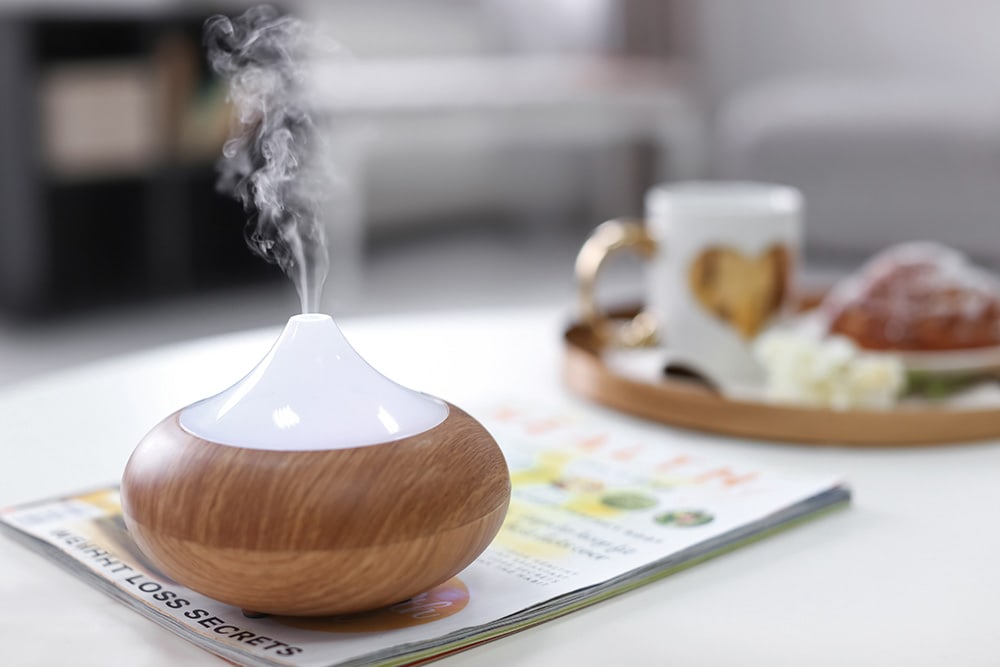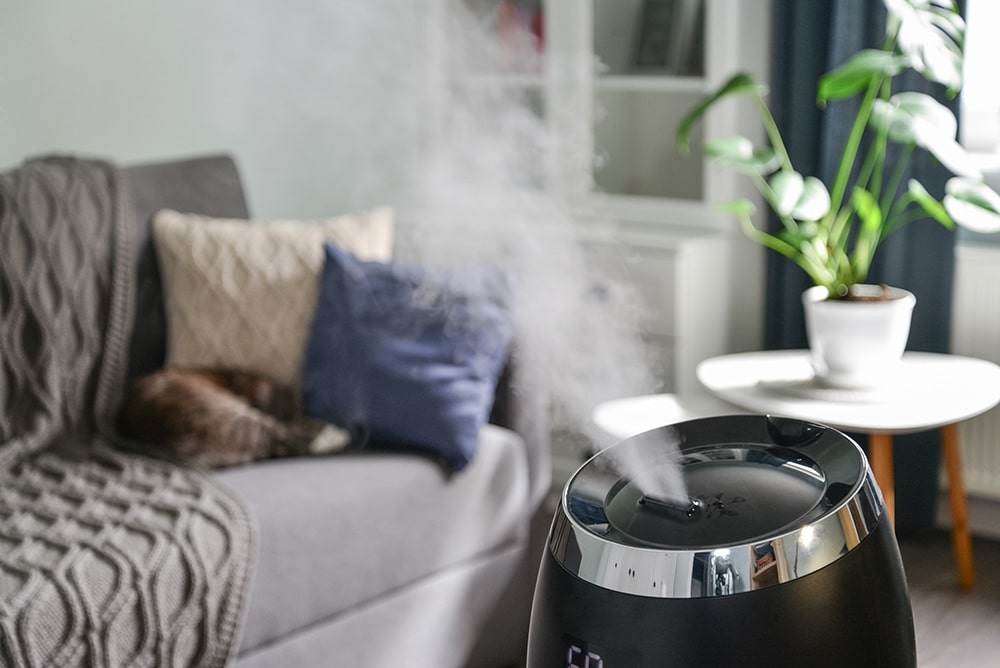Do Humidifiers Help With Allergies? Ideal Humidity & Relief
-
Pete Ortiz
- Last updated:

Anyone who suffers from bad allergies has likely sought relief in a variety of different places. Feeling congested with itchy, watery eyes and a sore throat is a terrible feeling. The search for relief from miserable allergy symptoms could lead to the idea of getting a humidifier. But do humidifiers really help with allergies? Why would regulating the humidity inside relieve allergy symptoms?
It turns out that humidifiers can help reduce allergy symptoms for people who spend a lot of time indoors, but it is not a perfect solution. Humidifiers work to both keep allergens out of the air and relieve the actual symptoms of allergies. Here is how humidifiers can help people with allergies.
 How Humidifiers Work
How Humidifiers Work
Humidifiers regulate the humidity in a space by adding or removing water from the atmosphere. Indoor spaces are often either too dry or too humid and that can have a big effect on allergies and airborne allergens. A humidifier works to keep the atmosphere at a specific level of humidity that is the most comfortable to the people occupying the space. They achieve this by adding water to the atmosphere via mist or steam or by removing the water by sucking in humid air and straining the water.
Humidifiers hold water in a tank and that water is then used to humidify a space. When a humidifier is removing water from the air it takes in the water and stores it in the tank. After the desired humidity is set the machine works to keep the air in balance by regulating the amount of water in the air.

How Humidifiers Help Relieve Allergy Symptoms
Humidifiers are great for making a space feel better while inside but how do they help with allergies? Humid air can help people’s airways. Dry air can exasperate inflamed airways and make itchy eyes feel worse and sore throats feel sorer. Adding water to the air can help soothe these symptoms that arise when someone is suffering from allergies. The correct level of humidity can thin mucus, lubricate wet airways and keep throats open and refreshed.
Humidity can also help keep allergens out of the air which can help reduce the severity and frequency of allergies. When air is more humid it causes allergens to stick to surfaces rather than remain free floating. Dry air allows particles to fly faster and remain airborne longer. Imagine a dirt road, when the weather has been exceptionally dry cars kick up much more dust and dirt when they drive along.
After a hard rain, dirt roads become muddy, and few particles make it into the air. The same principles apply to the air inside a home. Making a space more humid can keep the particles that cause allergies to remain fixed on surfaces which makes it easier to wipe them up or vacuum them away.
These two things work in tandem to help relieve allergy symptoms. Humid air makes eyes, noses and throats feel better when they are inflamed, and humidity helps keep irritating particles out of the air which reduces the severity of allergic responses.
Ideal Humidity
The ideal humidity will differ for each individual. Some people might feel best at 40% humidity while others might feel their allergies decrease at 60% humidity. Each person needs to adjust the humidity and see how they feel until they find the perfect level of humidity for themselves.

Humidifiers Are Not Air Purifiers
It is important to note that humidifiers are not air purifiers. Many humidifiers do have filters that help to remove particles that might be present in water found in the air, but their primary purpose is not air filtration. Humidifiers work primarily to regulate the humidity level and any filtration properties are secondary to the primary mission of regulation.
If you are looking to remove the allergens from the air, you want to get an air purifier instead of or in addition to a humidifier. Air purifiers’ primary job is to pull in air, filter out the particulate matter, and pump out fresh air. Air purifiers can also do wonders for people who have allergies.
Air purifiers and humidifiers can work together to create perfect air for people who suffer from allergies. Air that is at ideal humidity and properly filtered can help cut down on allergies while inside by a large margin.
 In Conclusion
In Conclusion
Air humidifiers can indeed help relieve allergy symptoms for people inside. Regulating the humidity can keep airways lubricated and it can keep the particulate matter on surfaces and out of your nose. However, humidifiers are not a silver bullet. They can certainly help but they won’t cure allergies and they won’t filter the air as well as an air purifier can.
Featured Image Credit: Mariia Boiko, Shutterstock
Contents

 How Humidifiers Work
How Humidifiers Work